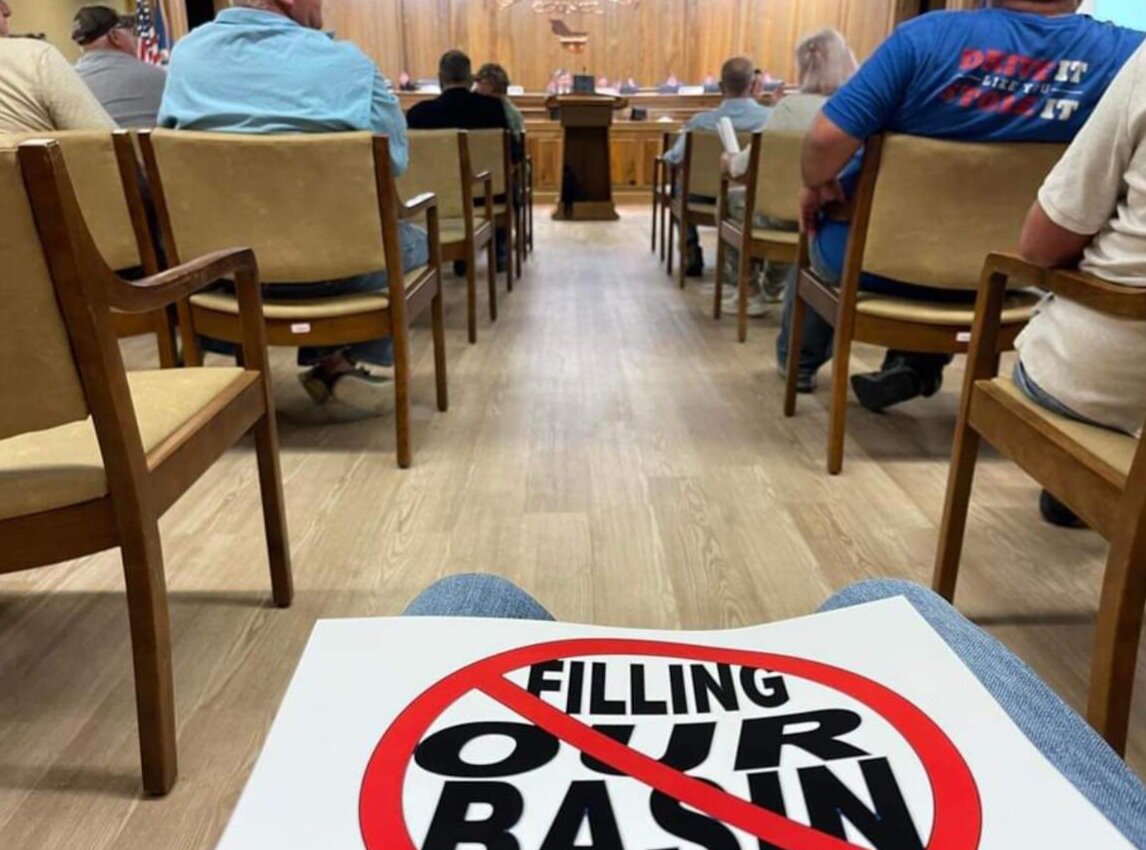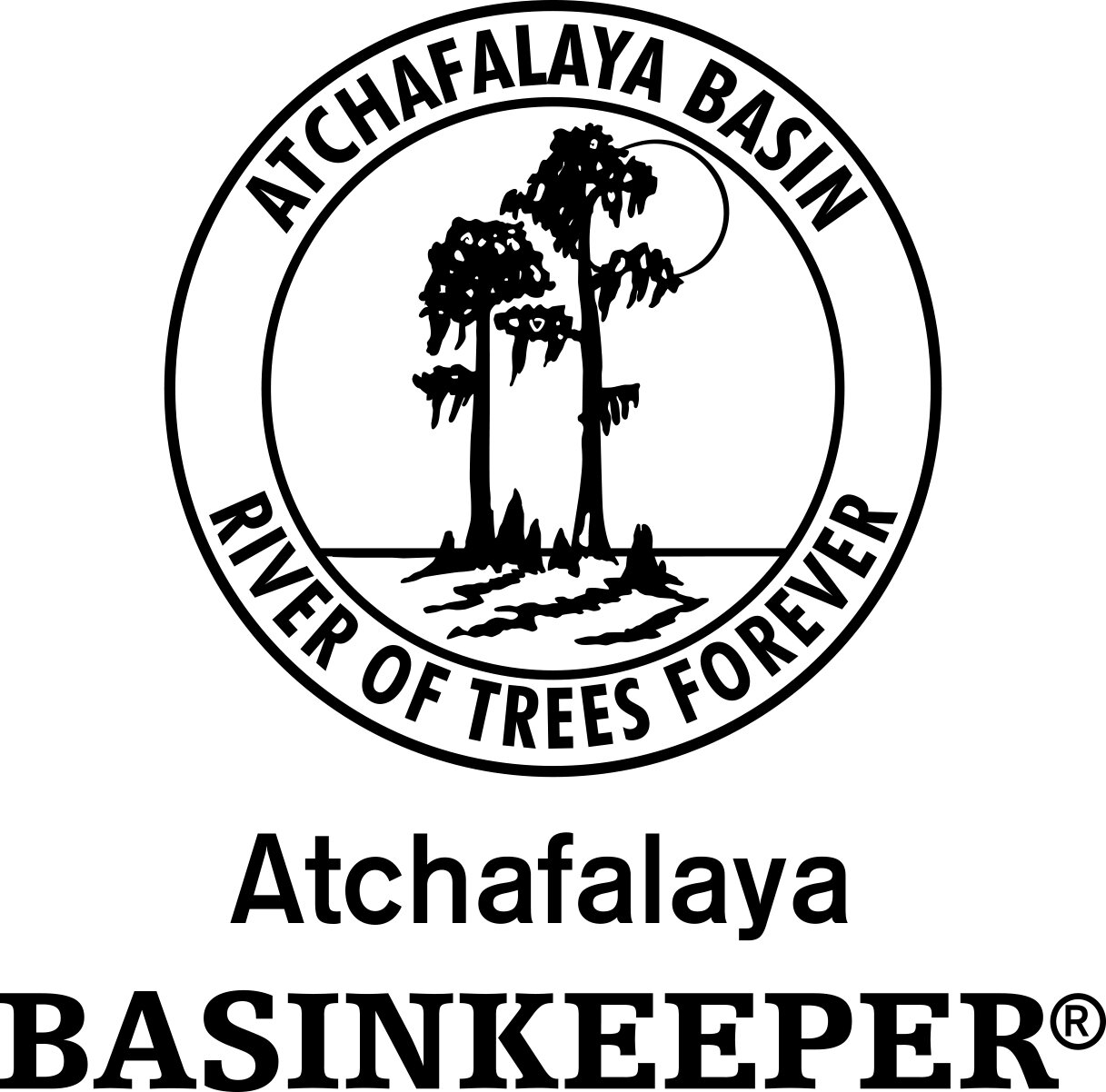FOR IMMEDIATE RELEASE: May 15, 2024
Media Contacts:
Dean Wilson, Atchafalaya Basinkeeper, enapay3@aol.com, 225-692-4114
Stephannie Kettle, Healthy Gulf, skettle@healthygulf.org 407.361.9432
Lisa Jordan, Tulane Environmental Law Clinic, lwjordan@tulane.edu, 504.314.2481
Lori Harrison, Waterkeeper Alliance, lharrison@waterkeeper.org, 703.216.8585
Environmental Groups, Local Crawfish Producers Bring Lawsuit to Challenge East Grand Lake Project in the Atchafalaya Basin
Legal Action Asks for the U.S. Army Corps “Dredge and Fill” Permit to be Vacated
(Louisiana) – Today, a plaintiff group, including Atchafalaya Basinkeeper, the Louisiana Crawfish Producers Association-West, Healthy Gulf, Sierra Club and its Delta Chapter, and Waterkeeper Alliance filed a lawsuit to challenge the U.S. Army Corps of Engineers’ approval of the Louisiana Coastal Protection and Restoration Authority’s (CPRA) East Grand Lake (EGL) project in the Atchafalaya Basin. The lawsuit, presented by the Environmental Law Clinic at Tulane University School, contests the Corps’ granting of a Clean Water Act section 404 permit allowing the dredging and filling of impacted wetlands. This permit was granted to the Louisiana CPRA for the implementation of the EGL project.
“The EGL project threatens the sustainability and health of the Atchafalaya Basin’s wetlands and the communities who live and earn a living there,” said Daniel E. Estrin, General Counsel and Legal Director for Waterkeeper Alliance. “The Corps should never have approved the dredge-and-fill permit in the first place, and we are left with no choice but to sue to vacate the permit and stop the implementation of the EGL project.”
While the EGL project has been coined a “swamp enhancement project,” experience and sound science demonstrate that the project will lead to increased sedimentation in the East Grand Lake area. This will ultimately convert productive and vital swamp habitat into bottomland hardwood forest by introducing sediment-laden river water and physically dispersing dredged sediment in the area. Sedimentation severely harms the Basin because it decreases flood storage capacity, and the Basin is a vital part of Mississippi River flood control management.
“Sierra Club advocates for preservation of natural habitat and for preservation of public access to places of natural beauty. Available science and direct observation of the results of past projects show that the construction of diversions of Atchafalaya river water to wetland swamps has accelerated the filling of swamps with sediment,” said Woody Martin, Sierra Club Delta Chapter. “The proposed project would continue the loss of wetland swamps, which support wildlife and which are accessible to the public for fishing and recreation.”
As North America's largest contiguous swamp, the Atchafalaya Basin is among the world's most productive. The groups hold that failing to revoke the permit and cease EGL project implementation could lead to severe environmental and economic consequences. Local fisheries and crawfisheries could face limited access to East Grand Lake, while the introduction of nutrient-rich river water from agricultural runoff may worsen hypoxia, further degrading water quality. The Basin's wetlands are also vital for migratory birds across the Western Hemisphere, and the ability to store and release floodwaters helps protect south-central Louisiana from flooding.
“This is crazy. Every year the Basin is losing critically important flood capacity, putting cities like Lafayette, Baton Rouge, New Orleans, and our entire Mississippi River industrial corridor at a terrible risk from Mississippi River floods,” said Dean Wilson, Executive Director of Atchafalaya Basinkeeper. “Against the wishes of fishermen and communities alike, our state is destroying some of the most amazing wetlands in the world, the last bastion of the Cajun culture, the most important wetlands for migratory birds in the western hemisphere and the future of our state.”
"The Army Corps' reckless approval of the East Grand Lake project ignores both science and the dire consequences for the Atchafalaya Basin," added Marti Collins, Healthy Gulf Executive Director. "This project fails to consider the significant ecological changes and increased sedimentation that have occurred over the past decades. Similar projects, like Buffalo Cove, have already proven disastrous, silting in vital fishing areas and devastating local livelihoods. The Corps must halt this ill-conceived project and conduct a thorough, updated environmental assessment to prevent further damage to our wetlands and communities."
After decades of manipulation through flood control activities and oil and gas exploration activities, the Lower Atchafalaya Basin Floodway System’s natural water flow has already been severely altered. This has led to stagnant water, sedimentation, and associated loss of floodwater carrying capacity that impair the Basin’s ecosystem, navigation, and flood control abilities. A significant portion of these initiatives receive backing from oil and gas firms and large land corporations. These entities profit from alterations that disrupt commercial fishing and public access while facilitating the increased privatization of wetland forests for activities such as private logging and other purposes.
Often positioned as water quality projects, river diversions in the Basin permitted or conducted by the Corps, such as those occurring in Buffalo Cove, Coon Trap, and Beau Bayou, have already filled thousands of acres of swamp wetlands. This has led to the loss or severe degradation of approximately 75% of the Basin’s cypress swamps, lakes, and bayous. Without intervention the groups contend that these projects will irreparably change the environment and the lives of impacted communities.
“The EGL project, like all the other projects, will forever destroy the wetlands that crawfishermen depend on to make a living,” said Avery Theriot, President of Louisiana Crawfish Producers Association-West. “These wetlands are the heart of our Cajun culture.”
For more information, visit www.basinkeeper.org/east-grand-lake.
###
Atchafalaya Basinkeeper, founded in 2004, is a member organization of Waterkeeper Alliance, representing over 2000 members. The mission of Atchafalaya Basinkeeper is to protect and restore the swamps, lakes, rivers, streams, and bayous of the Atchafalaya Basin for future generations. For more information, visit basinkeeper.org.
Healthy Gulf is a nonprofit organization dedicated to protecting and restoring the natural resources of the Gulf of Mexico. Since 1994, Healthy Gulf’s mission has been to collaborate with and serve communities who love the Gulf of Mexico by providing the research, communications, and coalition-building tools needed to reverse the long pattern of over-exploitation of the Gulf’s natural resources. Visit healthygulf.org or follow @HealthyGulf on Facebook, Instagram, X, and LinkedIn.
Louisiana Crawfish Producers Association-West (LCPA-West) was formed in the late 80s-early 90s because of trespassing threats against crawfishermen in the Atchafalaya Basin. The mission of LCPA-West is to fight for and protect the free use of navigable waters and water bottoms of the Atchafalaya Basin and state. LCPA-West also fights to restore the Atchafalaya Basin to its natural state as much as possible and does everything possible to bring the polluters and abusers of the Basin to justice. The organization fights for all users of the basin. For more information, visit lcpawest.com.
The Sierra Club is an American environmental organization with chapters in all 50 U.S. states, Washington D.C., and Puerto Rico. The Sierra Club's stated mission is "to explore, enjoy, and protect the wild places of the earth; to practice and promote the responsible use of the earth's ecosystems and resources; to educate and enlist humanity to protect and restore the quality of the natural and human environment; and to use all lawful means to carry out these objectives.” For more information, visit act.sierraclub.org.
Waterkeeper® Alliance is a global movement uniting more than 300 community-based Waterkeeper Organizations
and Affiliates around the world, focusing citizen action on issues that affect our waterways, from pollution to climate change. The Waterkeeper movement patrols and protects nearly six million square miles of rivers, lakes, and coastlines in the Americas, Europe, Australia, Asia, and Africa. For more information, visit waterkeeper.org.









